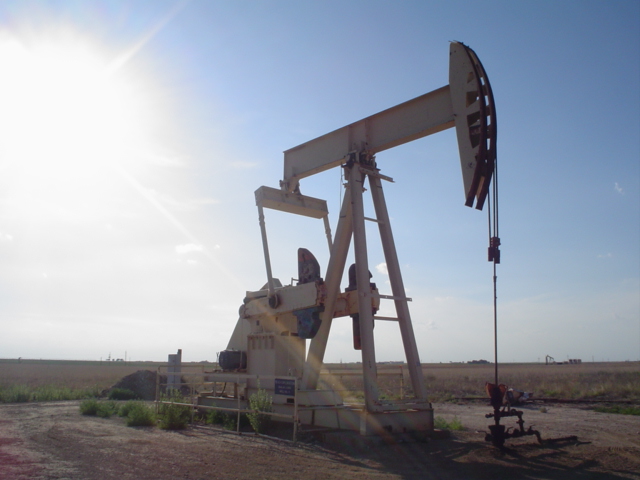Black Gold: The Mysteries of the Petroleum Industry– Rise, Decline, and Conflicts

Introduction to the Oil Industry
Oil, the black gold that has fueled the world’s engines for over a century, has a rich and fascinating history, marked by power struggles, political turmoil, and transformative technological advancements. Its influence extends far beyond the realm of energy, shaping economies, societies, and environments across the globe.
A Historical Journey: From Seeps to Superpowers

Here is a historical journey of the oil industry, from seeps to superpowers:
Oil: The Black Gold That Fuels the World
Oil, the lifeblood of modern civilization, has been the driving force behind economic growth and technological advancement for over a century. Its journey from natural seeps to a global powerhouse is a tale of innovation, power struggles, and environmental consequences.
Ancient Origins and Limited Use
The story of oil begins in ancient civilizations, where natural seeps of oil were used for medicinal and lighting purposes. The Assyrians, Egyptians, and Greeks were among the first to utilize oil, primarily as a sealant and waterproofing material.
The Discovery That Changed Everything
In 1859, Edwin Drake drilled the first successful oil well in Titusville, Pennsylvania, sparking an oil boom that would transform the world. Oil’s potential as a fuel for lamps and machines quickly became apparent, and its demand skyrocketed.
The Rise of Oil Giants and Industry Consolidation
The early oil industry was characterized by intense competition and rapid growth. Standard Oil, founded by John D. Rockefeller, emerged as a dominant force, controlling a significant portion of oil production and refining in the United States.
Oil and Geopolitics: A Strategic Asset
Oil quickly became a strategic asset, influencing global politics and international relations. Control over oil-producing regions became a source of power and influence, leading to conflicts and tensions. The Arab-Israeli conflict, the Iran-Iraq War, and the Gulf War are just a few examples of conflicts linked to oil interests.
Environmental Concerns and the Search for Sustainability
As the oil industry grew, so did concerns about its environmental impact. The burning of fossil fuels, including oil, is a major contributor to greenhouse gas emissions, driving climate change and its associated environmental consequences.
Technological Advancements and the Pursuit of Efficiency
The oil industry has continuously evolved through technological advancements. Deepwater drilling, horizontal drilling, and hydraulic fracturing have enabled the extraction of oil from previously inaccessible reserves, expanding the industry’s reach and production capacity.
Renewable Energy and the Transition to a Sustainable Future
The rise of renewable energy sources, such as solar and wind power, has presented a significant challenge to the oil industry. As the world strives to reduce its reliance on fossil fuels and mitigate climate change, the industry is adapting to meet the changing energy landscape.
The Future of Oil: An Uncertain but Enduring Force
The future of the oil industry is uncertain, as it faces numerous challenges and adapts to a changing energy mix. The industry’s ability to embrace sustainability, innovate, and adapt to new technologies will determine its long-term viability.
Conclusion: A Legacy of Transformation
The oil industry has had a profound impact on the world, shaping economies, societies, and environments. While it faces significant challenges in the era of climate change and renewable energy, its influence is likely to continue in the global energy mix for decades to come.
The journey of oil from natural seeps to a global powerhouse is a testament to human ingenuity and the transformative power of energy. As the world navigates the transition to a sustainable future, the oil industry’s role will continue to evolve, leaving an indelible mark on the world’s energy landscape.
Consequences of Oil: A Double-Edged Sword
The oil industry has had a profound impact on the world, both positive and negative. It has revolutionized transportation, manufacturing, and power generation, enabling modern life as we know it. Oil revenues have fueled economic growth and development in many countries.
Positive Consequences
- Economic Growth: The oil industry has been a major driver of economic growth around the world. Oil revenues have helped to fund infrastructure development, education, and healthcare in many countries.
- Technological Innovation: The oil industry has spurred innovation in a number of areas, including exploration, drilling, and refining. These technologies have also been applied to other industries, such as mining and construction.
- Improved Quality of Life: Oil has made it possible for people to travel more easily, heat their homes, and power their businesses. This has led to a significant improvement in the quality of life for many people around the world.
Negative Consequences
- Environmental Damage: The burning of fossil fuels, including oil, is a major contributor to greenhouse gas emissions, which drives climate change. Oil spills and other environmental accidents can cause significant damage to ecosystems and human health.
- Geopolitical Instability: Oil-producing regions often hold significant geopolitical influence, as their oil reserves are considered strategic assets. Control over oil resources has been a source of conflict and political maneuvering throughout history.
- Social and Economic Inequality: The oil industry has been criticized for exacerbating social and economic inequality. Oil-producing countries often have a small elite that benefits from the oil wealth, while the majority of the population lives in poverty.
Balancing the Scales: A Call for Sustainability
The oil industry has undoubtedly played a significant role in shaping the modern world. However, its negative consequences, particularly its impact on the environment and its contribution to social and economic inequality, cannot be ignored.
As the world grapples with the challenges of climate change and the need for sustainable development, it is crucial to strike a balance between the benefits and drawbacks of the oil industry. Investing in cleaner energy sources, promoting energy efficiency, and implementing stricter environmental regulations are essential steps towards a more sustainable future.
The oil industry has the potential to be a force for good in the world, but only if it operates responsibly and sustainably. It is time to move beyond the “double-edged sword” legacy and embrace a future where oil is used in a way that benefits both humanity and the planet.
Power Struggles and Political Turmoil
Oil, the black gold that fuels the world, has been at the heart of power struggles and political turmoil for over a century. Its strategic importance, economic value, and environmental implications have made it a coveted resource, often leading to conflicts, tensions, and political maneuvering.
The Quest for Oil and Regional Dominance
Oil-producing regions have long held significant geopolitical influence, as their oil reserves were considered strategic assets. Control over these resources has been a source of power and influence, driving nations to compete for control of oil-rich territories.
The Middle East, with its vast oil reserves, has been a focal point of this struggle. The region has witnessed numerous conflicts, including the Arab-Israeli conflict, the Iran-Iraq War, and the Gulf War, all of which were, at least in part, motivated by oil interests.
Oil as a Political Weapon
Oil has also been used as a political weapon, with embargoes and sanctions imposed to exert pressure on rival nations. The Arab oil embargo of 1973, triggered by the US support for Israel during the Yom Kippur War, had a devastating impact on the global economy, demonstrating the power of oil as a political tool.
The Environmental Impact and the Rise of Climate Politics
The oil industry’s environmental impact, particularly its contribution to greenhouse gas emissions and climate change, has added a new dimension to power struggles and political turmoil. The fight against climate change has become a global political issue, with nations divided over how to address this pressing challenge.
Oil-producing countries, often reliant on oil revenues for their economies, have been hesitant to embrace policies that could threaten their industries. Developed nations, on the other hand, have pushed for stricter environmental regulations and a transition towards cleaner energy sources.
Navigating the Complexities of Oil and Power
The oil industry’s entanglement with power struggles and political turmoil is a complex and multifaceted issue. It highlights the intersection of economics, politics, and environmental concerns, making it a challenging and ever-evolving landscape.
As the world strives to address climate change and transition to a sustainable future, the role of oil in the global energy mix will continue to be debated and negotiated. Finding a balance between economic development, environmental protection, and geopolitical stability will be crucial in navigating the complexities of oil and power.
The Present-Day Scenario: Navigating a Changing Landscape
The oil industry today faces a multitude of challenges and opportunities, navigating a rapidly changing landscape amidst technological advancements, environmental concerns, and shifting geopolitical dynamics.
Technological Advancements: Extracting More, Drilling Deeper
The oil industry has continuously evolved through technological advancements, enabling the extraction of oil from previously inaccessible reserves. Deepwater drilling, horizontal drilling, and hydraulic fracturing have expanded the industry’s reach and production capacity, allowing it to tap into unconventional oil sources such as shale formations.
Environmental Concerns: Sustainability under Scrutiny
The oil industry faces growing scrutiny for its environmental impact, particularly its contribution to greenhouse gas emissions and climate change. The burning of fossil fuels is a major driver of climate change, leading to rising sea levels, extreme weather events, and disruptions to ecosystems.
Shifting Geopolitical Dynamics: Oil in the Age of Renewables
The rise of renewable energy sources, such as solar and wind power, has presented a significant challenge to the oil industry. As the world strives to reduce its reliance on fossil fuels and mitigate climate change, the oil industry is adapting to meet the changing energy landscape.
Adapting and Innovating: Embracing Change and Sustainability
The oil industry is adapting to the changing landscape by investing in new technologies, such as carbon capture and storage (CCS), which aims to capture and store carbon dioxide emissions from power plants and industrial processes. Companies are also exploring cleaner-burning fuels, such as natural gas and biofuels, while developing renewable energy sources, such as solar and wind power.
Navigating the Future: Uncertainties and Enduring Significance
The future of the oil industry is uncertain, as it faces numerous challenges and adapts to a changing energy mix. The industry’s ability to embrace sustainability, innovate, and adapt to new technologies will determine its long-term viability.
Despite the challenges, oil is likely to remain an important part of the global energy mix for decades to come. Its versatility, affordability, and transportability make it an essential component of many sectors, including transportation, manufacturing, and power generation.
Conclusion: A Balancing Act
The oil industry faces a delicate balancing act between its economic importance and its environmental impact. As the world transitions towards a low-carbon economy, the oil industry must adapt to the changing energy landscape and embrace sustainability.
Striking a balance between economic growth, environmental protection, and social responsibility will be crucial for the oil industry’s long-term success in a world grappling with climate change and the need for sustainable development.
The Future of Oil: An Uncertain Landscape
Predicting the future of the oil industry is a complex task, as it is influenced by a multitude of factors, including technological advancements, environmental concerns, shifting geopolitical dynamics, and evolving consumer preferences. While the industry faces significant challenges, it also holds the potential to adapt and play a role in a sustainable energy future.
Technological Advancements: Driving Efficiency and Innovation
Technological advancements are likely to continue driving efficiency and innovation within the oil industry. Artificial intelligence (AI) and machine learning (ML) are being used to optimize well placement, improve drilling techniques, and enhance production processes. Additionally, advancements in renewable energy technologies, such as solar and wind power, may also impact the oil industry, potentially leading to a decrease in demand for oil in certain sectors.
Environmental Concerns: Addressing Sustainability and Climate Change
The oil industry faces growing pressure to address its environmental impact, particularly its contribution to greenhouse gas emissions and climate change. Carbon capture and storage (CCS) technologies, which aim to capture and store carbon dioxide emissions from power plants and industrial processes, are being explored as a potential solution to mitigate the industry’s environmental footprint.
Shifting Geopolitical Dynamics: Navigating a Changing World Order
Geopolitical dynamics will continue to play a significant role in shaping the future of the oil industry. Political instability in oil-producing regions, conflicts over oil resources, and shifting alliances among major oil-consuming countries can all impact the industry’s operations and global oil prices.
Evolving Consumer Preferences: Shifting Energy Choices
Consumer preferences are also evolving, with a growing demand for cleaner and more sustainable energy sources. As individuals and businesses become more aware of the environmental impact of their energy choices, they may shift towards renewable energy sources, potentially reducing demand for oil in certain sectors.
Adapting to a Sustainable Energy Future
The oil industry can remain relevant in a sustainable energy future by adapting to the changing landscape. Investing in renewable energy sources, embracing carbon capture and storage technologies, and developing cleaner-burning fuels can help the industry reduce its environmental impact and contribute to a sustainable energy mix.
Conclusion: An Uncertain but Enduring Force
The future of the oil industry is uncertain, as it faces numerous challenges and adapts to a changing energy landscape. The industry’s ability to embrace sustainability, innovate, and adapt to new technologies will determine its long-term viability. While oil may not be the dominant energy source indefinitely, it is likely to remain an important part of the global energy mix for decades to come.
Conclusion: A Force to be Reckoned With
The oil industry has played a pivotal role in shaping the modern world, revolutionizing transportation, manufacturing, and power generation. While it faces significant challenges in the era of climate change and renewable energy, its influence is likely to continue in the global energy mix for decades to come.
The industry’s legacy of innovation and adaptability positions it well to navigate the changing energy landscape and address the environmental concerns associated with fossil fuels. By embracing sustainability, investing in new technologies, and working with policymakers and stakeholders, the oil industry can remain a responsible and valuable part of the global energy transition.
In conclusion, the oil industry is a complex and multifaceted entity with a profound impact on the world. While it faces numerous challenges, its ability to adapt and innovate will determine its long-term viability in a sustainable energy future. The industry’s legacy of transformation, together with its potential to embrace sustainability, positions it as a force to be reckoned with as the world transitions towards a cleaner and more equitable energy future.
Things to Learn and Remember
Here are some key takeaways from the essay on the oil industry:
- The oil industry has played a significant role in shaping the modern world, revolutionizing transportation, manufacturing, and power generation. Its impact is far-reaching, affecting economies, societies, and environments across the globe.
- The oil industry has both positive and negative consequences. On the one hand, it has fueled economic growth, enabled technological advancements, and improved the quality of life for many people. On the other hand, it has contributed to environmental damage, geopolitical instability, and social and economic inequality.
- The oil industry faces numerous challenges in the era of climate change and renewable energy. The industry is under pressure to reduce its environmental footprint, adapt to new technologies, and address the growing demand for cleaner energy sources.
- The future of the oil industry is uncertain. The industry’s ability to embrace sustainability, innovate, and adapt to the changing energy landscape will determine its long-term viability.
- Understanding the oil industry is essential for grasping the complexities of the modern world. Its impact is far-reaching, and its future is intertwined with our collective efforts to address climate change and transition towards a sustainable energy future.














